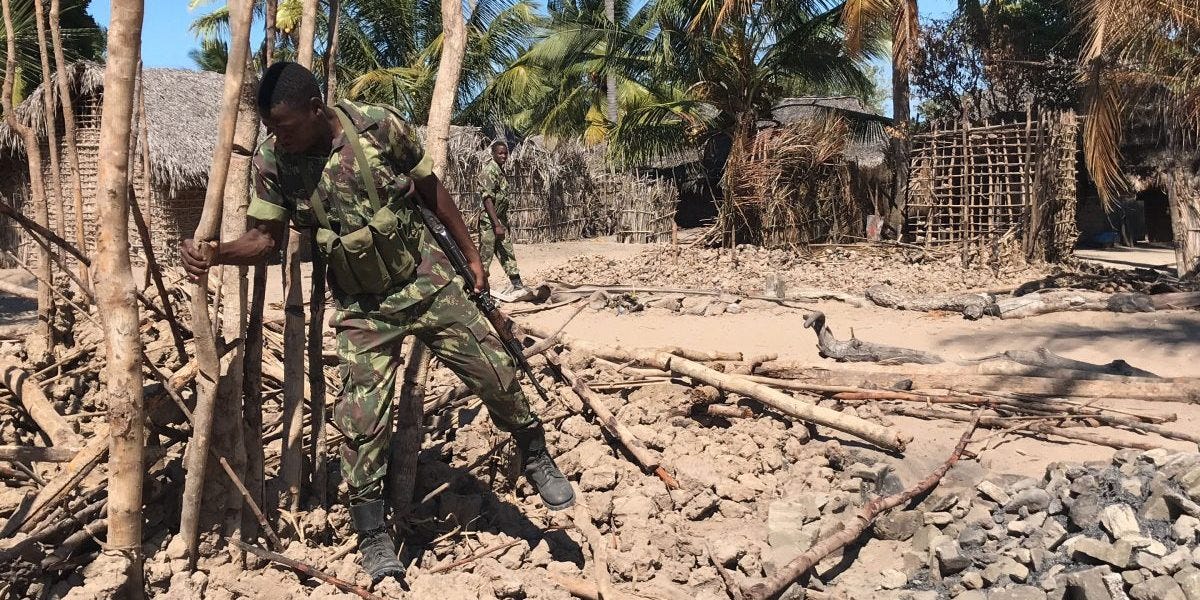SADC Troops to Leave Mozambique Over Funding
SADC had approved extending SAMIM's mandate for another year last August but with a plan for a "progressive withdrawal."
MAPUTO, Mozambique— Troops from the Southern African Development Community will withdraw completely from Mozambique by July 15 due to financial challenges, according to SADC, marking a potential setback in efforts to quell an Islamist insurgency in the north, writes Charles Mangwiro.
The SADC Mission in Mozambique (SAMIM), comprised of soldiers from eight regional countries, has been supporting Mozambican forces against the militants in Cabo Delgado province since July 2021.
SADC had approved extending SAMIM's mandate for another year last August but with a plan for a "progressive withdrawal."
"Everything indicates that July 15th could be considered as a date on which they will completely withdraw," Mozambican President Filipe Nyusi said Saturday after meeting with the SADC's politics, defense and security leader, Zambian President Hakainde Hichilema.
Nyusi added that Mozambique will continue cooperating bilaterally with SADC nations and is open to assistance from other countries.
He called on Mozambicans to unite, saying "the biggest responsibility lies with us."
SADC is shifting resources to prioritize its military mission in the Democratic Republic of Congo over SAMIM due to budget constraints, according to Mozambique's foreign minister, Veronica Macamo. Over 120 armed groups are active in eastern DRC.
The insurgency in Muslim-majority Cabo Delgado has killed over 5,000 people and displaced more than 1 million since 2017, stalling billions of dollars' worth of natural gas projects.
Rwandan troops have also been helping battle the militants.
Questions remain over whether Mozambique's military can now handle the insurgency alone if SAMIM departs amid a recent surge in rebel attacks and civilian beheadings.
"One would beg to ask, has peace and security returned to the province? No, does the Mozambican military now have the capacity to deal with insurgency? This we wait and see," said Webster Zambara, a senior project leader at the South Africa-based Institute for Justice and Reconciliation.
Zambara added that the continued presence of Rwandan forces indicates Mozambique still needs assistance against the insurgents.
"We have to recognize that the issues of peace and security are a prerogative of the government of Mozambique and for the SADC troops to go there in the first place along with the Rwanda troops is a sign that Mozambique had been struggling to deal with the insurgency," he said.
"Now that the SADC contingency will be leaving, will there not be a vacuum especially at a time when in recent weeks we have noted a rise in insurgency and attacks in the province?"
Oil giants ExxonMobil and TotalEnergies are among the major international energy companies developing offshore natural gas projects in the region, which has been disrupted by the violence.
SAMIM is made up of troops from Angola, Botswana, Democratic Republic of Congo, Lesotho, Malawi, South Africa, Tanzania and Zambia.
SADC first confirmed the withdrawal last week, saying it was already underway.
The 16-nation regional bloc has been leading military interventions against rebel groups in Cabo Delgado as well as in eastern DRC, where the East African Community has also deployed a force.



